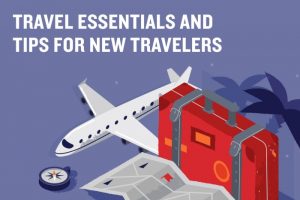
Understanding Solo Travel Safety
Solo travel can be an exhilarating adventure, but safety should always be a top priority. When exploring new destinations alone, the importance of being vigilant and prepared cannot be overstated. Common risks associated with solo travel include theft, scams, and getting lost, but these can often be mitigated with proper planning and awareness. Despite these risks, solo travel offers unique benefits, such as the freedom to explore at your own pace and the opportunity for personal growth.
Common Risks and Benefits
Traveling alone exposes individuals to certain risks, but understanding these risks can empower solo travelers to enjoy their journeys more fully. The main risks include:
- Theft: Solo travelers are often perceived as easy targets for pickpockets and scams.
- Getting lost: Navigating unfamiliar places can lead to confusion and potential safety issues.
- Lack of support: In an emergency, solo travelers might not have immediate assistance.
Despite these risks, there are significant benefits to solo travel that include:
- Increased confidence: Overcoming challenges alone fosters self-reliance.
- Cultural immersion: Traveling solo often allows for deeper connections with locals.
- Personal freedom: The ability to change plans at a moment’s notice is liberating.
Pre-Travel Preparations
Before embarking on a solo adventure, it’s essential to prepare adequately. A checklist can help ensure that you have all necessary safety items packed.
Essential Safety Items Checklist
Packing the right items can significantly enhance your safety as a solo traveler. Consider including the following:
- First aid kit: Essential for handling minor injuries or illnesses.
- Personal alarm: A small device that can alert others in case of an emergency.
- Portable charger: Ensures your phone is always functional, especially for navigation and communication.
- Travel insurance: Protects you in case of medical emergencies or trip cancellations.
Creating a Personalized Travel Safety Plan
A personalized travel safety plan is crucial for solo travelers. Start by mapping out your itinerary, noting safe areas to stay and visit. Research local emergency contacts, such as hospitals and police stations, and communicate your plans with a friend or family member.
Staying Connected
Maintaining communication with family and friends while traveling alone is vital for safety.
Importance of Staying in Touch
Regularly updating loved ones about your whereabouts can provide peace of mind for both you and them.
Using Technology for Safety
Leverage technology to enhance your safety. Consider using location-sharing apps, such as Google Maps or Find My Friends, to allow trusted contacts to track your location in real time.
Access to Emergency Contacts Abroad
Always have a list of emergency contacts accessible. Store important numbers in your phone and carry a physical copy. This includes local emergency services and contacts back home.
Accommodation Safety
Choosing where to stay is a significant aspect of ensuring your safety while traveling solo.
Comparing Accommodation Types
Different types of accommodations offer varying levels of safety. Hotels typically have security measures in place, while hostels may provide a more communal environment. Research reviews to gauge the safety features of each option.
Selecting Safe Neighborhoods
When booking accommodation, prioritize safe neighborhoods. Look for areas with good security, well-lit streets, and proximity to public transport.
Reviewing Accommodations Before Booking
Before finalizing your booking, read reviews and ratings from previous guests regarding safety and security. This information can help you make an informed decision.
Transportation Safety
Navigating transportation options safely is crucial for solo travelers.
Safe Transportation Options
In different regions, there are various safe transportation methods available. In urban areas, public transport can be reliable, while in rural locations, rideshare services may be more accessible.
Best Practices for Using Public Transport
When using public transport, keep your belongings secure and remain aware of your surroundings. Avoid displaying valuables and try to travel during peak hours.
Ensuring Personal Safety during Rideshare Services
When using rideshare services, confirm the driver’s identity and the vehicle details before getting in. Share your ride details with a friend for added security.
Personal Safety Practices
Developing a keen sense of situational awareness is essential for solo travelers.
Managing Personal Belongings
Keep your belongings close and secure. Use crossbody bags and never leave valuables unattended.
Handling Unwanted Attention
If you encounter unwanted attention or harassment, trust your instincts. Walk confidently to crowded areas and seek help if necessary.
Emergency Situations
Being prepared for emergencies can make a significant difference in your overall travel experience.
Steps for Lost Belongings or Documents

In case of lost belongings or documents, report the loss to local authorities and your embassy. They can guide you through the process of obtaining replacements.
Finding Local Emergency Services
Familiarize yourself with local emergency services before you travel. Know how to contact police, medical help, and your country’s embassy.
Importance of a Backup Plan
Having a backup plan, including alternative accommodation and transportation options, can provide peace of mind in case of emergencies.
Cultural Sensitivity and Awareness
Understanding local customs is vital for ensuring a safe travel experience.
Significance of Understanding Local Customs
Being aware of cultural norms and laws can prevent misunderstandings that might jeopardize your safety. Respecting local etiquette fosters goodwill and helps you navigate social situations more smoothly.
Cultural Faux Pas Examples
Certain behaviors can be considered offensive in different cultures, such as inappropriate dress codes or gestures. Researching these beforehand can help avoid potential conflicts.
Networking with Other Travelers
Connecting with fellow travelers is an excellent way to enhance safety.
Benefits of Connecting with Fellow Travelers
Building relationships with other travelers can provide support and companionship, making your journey more enjoyable.
Finding Travel Groups or Communities
Look for travel groups on social media platforms or travel forums to find like-minded individuals. These communities often share tips and can enhance your travel experience.
Mental Preparation and Mindset
Maintaining a positive mindset is essential for solo travelers.
Importance of a Positive Mindset
Adopting a positive mindset can help you navigate challenges more effectively and enjoy your journey.
Overcoming Anxiety Related to Solo Travel
Practice relaxation techniques, such as deep breathing or mindfulness, to manage anxiety. Preparing thoroughly can also enhance your confidence.
Building Confidence in Travel Decisions
Making independent travel decisions can be empowering. Trust your instincts and learn from experiences to build your confidence over time.





